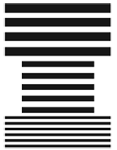There are many different types of indexing, some of which require specialised skills from indexers. Examples include:
- Bibliographic and database indexing
- Genealogical indexing
- Geographical indexing
- Book indexing
- Legal indexing
- Periodical and newspaper indexing
- Pictorial indexing
- Subject gateways
- Website and metadata indexing
Bibliographic and database indexing
Bibliographic database indexers provide records for items such as journal articles. The database then provides online access to a body of literature (eg medical journal articles). Citation and subject details are described according to set rules specifically for that database.
A database indexer aims to:
- identify and provide details, including subject terms, about journal articles and other items, usually within a broad subject area, and which may include use of a thesaurus
- describe a document and give citation details and other information according to set rules specified for the database
- explain succinctly the contents of a document in a written summary (called an abstract)
- produce a database record for an item, providing online access to a body of literature.
Genealogical indexing
Genealogical indexes allow users to look up people’s names and find information about personal and family relationships. They often eliminate the need to access original source materials (eg cemetery inscriptions). Genealogical indexers are skilled in researching and recording information about historical people and places.
Geographical indexing
Geographic indexers create indexes to maps, atlases and other cartographic material. Geographical indexes may include place names, topics, historical details, mathematical qualities (eg scale and coordinates) and artistic
features. Often geographic indexers have special skills or backgrounds in cartography or geography.
Book indexing
Book indexers create indexes to provide access to detailed contents of books. Back-of-book indexes are made for all types of non-fiction books, including textbooks, multi-volume works, technical reports and annual reports. Books that are online, PDF books, and ebooks also need indexes. These link directly to points in the text.
Legal indexing
Legal indexing involves indexing of legal materials by form and content. Legal indexers are familiar with legal concepts and classification and are able to translate the classification into an accessible index. Legal indexers are
especially involved in the consolidation and updating of existing indexes, and also prepare tables of legislation and cases.
Periodical and newspaper indexing
Periodical and newspaper indexes give access to the contents of individual articles and other items in serialised publications. Many periodical and newspaper indexes are based on a controlled vocabulary to ensure consistent use of terms from year to year. Periodical and newspaper indexers help ensure that an overview of the issues discussed throughout the life of the index are easily accessible. Newspaper and periodical indexes can be annual or cumulative.
Pictorial indexing
Indexes to images help users identify relevant pictures in collections of photographs, art works, videos and films. Pictorial indexers are skilled in identifying and describing images in visual collections.
Subject gateways
Indexers are also involved in new forms of electronic indexing. One growing area needing indexing is online information. Indexers create subject gateways on the internet which classify links to web pages of interest.
Website and metadata indexing
Despite the proliferation of automated search engines, there are a number of ways in which human indexers are needed to enhance access to information on the World Wide Web. Website indexes can be similar in style to back of book indexes or can be designed as hierarchical pages, which both link directly to the information required. They complement other navigational tools such as site maps and search engines. Metadata indexers improve the precision of access to web documents through search engines by the use of standard elements similar to those used in database indexes and library catalogues.
